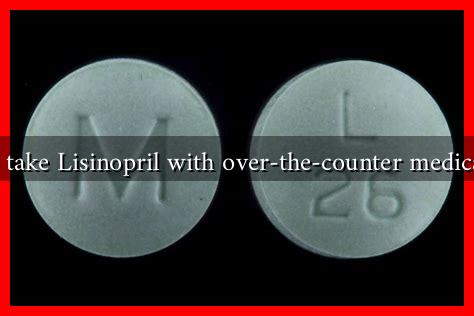-
Table of Contents
Can I Take Lisinopril with Over-the-Counter Medications?
Lisinopril is a commonly prescribed medication used to treat high blood pressure and heart failure. As with any medication, it is crucial to understand how it interacts with other substances, including over-the-counter (OTC) medications. This article explores the compatibility of Lisinopril with various OTC drugs, potential interactions, and best practices for safe medication use.
Understanding Lisinopril
Lisinopril belongs to a class of medications known as ACE inhibitors (Angiotensin-Converting Enzyme inhibitors). It works by relaxing blood vessels, which helps lower blood pressure and improve blood flow. While effective, Lisinopril can have side effects and interactions that patients should be aware of.
Common Over-the-Counter Medications
OTC medications are widely used for various ailments, including pain relief, allergies, and cold symptoms. Some common categories of OTC medications include:
- Pain Relievers: Acetaminophen (Tylenol), Ibuprofen (Advil, Motrin)
- Cold and Allergy Medications: Antihistamines (Benadryl, Claritin), Decongestants (Sudafed)
- Stomach Aids: Antacids (Tums, Rolaids), Proton Pump Inhibitors (Prilosec)
Potential Interactions with Lisinopril
While many OTC medications can be taken safely with Lisinopril, some may pose risks. Here are a few categories of OTC drugs to be cautious with:
- Non-Steroidal Anti-Inflammatory Drugs (NSAIDs): Medications like ibuprofen and naproxen can reduce the effectiveness of Lisinopril and may lead to kidney problems when taken together.
- Decongestants: OTC decongestants containing pseudoephedrine can raise blood pressure, counteracting the effects of Lisinopril.
- Potassium Supplements: Some OTC medications may contain potassium, which can lead to hyperkalemia (high potassium levels) when combined with Lisinopril.
Case Studies and Statistics
A study published in the Journal of Hypertension found that patients taking Lisinopril alongside NSAIDs experienced a significant increase in blood pressure compared to those who did not. This highlights the importance of consulting healthcare providers before combining these medications.
Furthermore, a survey conducted by the American Heart Association revealed that nearly 30% of patients on antihypertensive medications, including Lisinopril, reported using OTC medications without consulting their doctors. This lack of communication can lead to adverse effects and ineffective treatment.
Best Practices for Safe Medication Use
To ensure safe use of Lisinopril alongside OTC medications, consider the following best practices:
- Consult Your Doctor: Always discuss any OTC medications you plan to take with your healthcare provider.
- Read Labels Carefully: Check for ingredients that may interact with Lisinopril, especially NSAIDs and decongestants.
- Monitor Your Blood Pressure: Keep track of your blood pressure regularly, especially when starting a new OTC medication.
- Report Side Effects: If you experience unusual symptoms or side effects, contact your healthcare provider immediately.
Conclusion
In summary, while many over-the-counter medications can be safely taken with Lisinopril, caution is necessary. Understanding potential interactions, particularly with NSAIDs and decongestants, is crucial for maintaining effective blood pressure management. Always consult with a healthcare provider before adding any OTC medications to your regimen. By following best practices and staying informed, patients can safely navigate their medication options while effectively managing their health.


